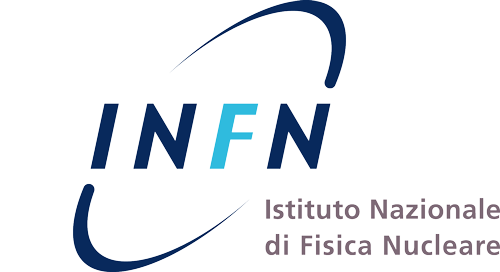PEOPLE
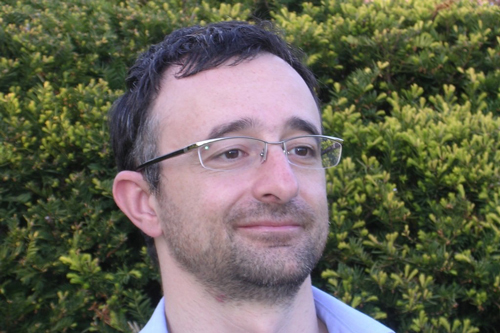
RIBBON CUTTING FOR ADVANCED VIRGO
Interview with Giovanni Losurdo, INFN researcher and coordinator of the Advanced Virgo project
The opening ceremony of Advanced Virgo, the European second generation interferometer for gravitational waves, took place on 20 February at the European Gravitational Observatory (EGO), in Cascina, in the countryside around Pisa, in the presence of members of Virgo and LIGO collaborations and of the institutional representatives of the countries involved. Advanced Virgo has completed the construction phase and has entered the tuning-up phase, in which it is calibrating and tuning all its instruments. It will thus join the two American Advanced LIGO interferometers in the study of gravitational waves, whose discovery was announced on 11 February 2016 by the two LIGO and Virgo scientific collaborations. We talked about Advanced Virgo with the project coordinator, Giovanni Losurdo, to understand how the instrument has been upgraded and what are the prospects now open for the study of the waves.
We cut the ribbon of Advanced Virgo a few days ago. Which interventions were performed on the detector to increase its sensitivity? It was a substantial upgrade package that involved all parts of Virgo. Starting from the optical design itself: we added an optical cavity (signal recycling an optical method that allows the interferometer response to be optimized). We enlarged the size of the beams in order to reduce the impact of the thermal noise of the mirrors. The mirrors are larger and the surface quality is much improved compared to Virgo. The laser ...
FOCUS ON
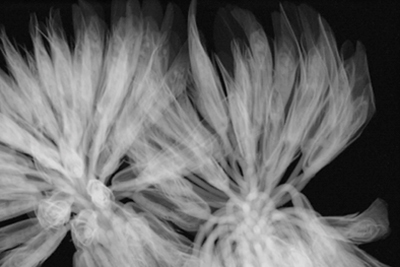 PIXIRAD – FROM FUNDAMENTAL PHYSICS TO THE EUROPEAN MARKET
PIXIRAD – FROM FUNDAMENTAL PHYSICS TO THE EUROPEAN MARKET
First INFN spin-off company, PIXIRAD is a success story in which a technology deriving from research in fundamental physics is "exported" to the commercial world in a market sector characterised by innovation and high specialisation. Sealing the innovative capacity of the project, in February PIXIRAD signed an agreement for its acquisition by PANalytical, part of Spectris plc, a Dutch company and world leader in instrumentation for materials analysis and characterisation using X-ray techniques. The spin-off was created in 2012 by a research group of the INFN Pisa division, specialised in the development of radiation sensors based on technologies developed in the field of particle physics and space research. The objective: bringing on the international market highly innovative detectors able to contribute to social and economic development in the areas of digital radiology and industrial and scientific imaging, in particular with X-ray diffraction and crystallography techniques. The team of INFN physicists thus set up a spin-off with the aim of implementing this technology, which in just a few years has attracted the interest of industrial companies worldwide. In particular, the unique ability of the PIXIRAD technology to ensure efficiency in a very wide energy range (from 1 to 100 keV and beyond) has made its detectors the ideal choice for the structural analysis of materials with techniques that require the use of high energy X-rays, such as X-ray diffraction and crystallography. ...
NEWS
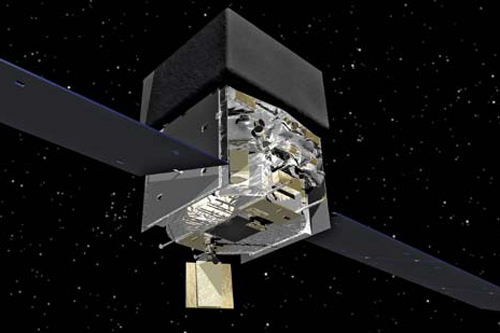
RESEARCH
THE HIDDEN SIDE OF THE SUN
Fermi, the NASA satellite that studies gamma photons in space, in which Italy is participating with INFN, the National Institute for Astrophysics (INAF) and the Italian Space Agency (ASI), has detected new ultra-high energy solar flares, that originated in the non-visible side of the Sun. ...

NOMINATION
MAURO TAIUTI AT THE HEAD OF KM3NeT
Elected head of KM3NeT, the international project for the construction of a new generation submarine telescope dedicated to the study of neutrinos, Mauro Taiuti will coordinate the collaboration of scientists, as well as from INFN, from nearly 40 institutions from 11 countries: Cyprus ...
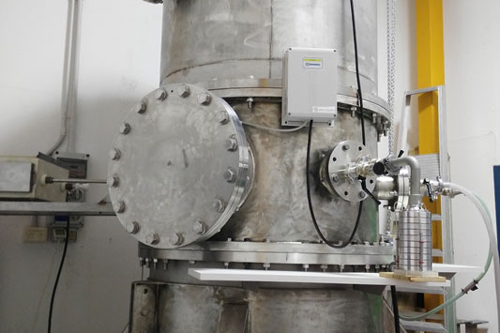
APPLIED RESEARCH
THE EUROPEAN NETWORK OF ATMOSPHERIC SIMULATION CHAMBERS IS BORN
EUROCHAMP 2020, the European project for the creation of a network of atmospheric simulation chambers, in which INFN is participating with the construction of the first Italian chamber, ChAMBRe, has got underway. Creating artificial atmospheres under controlled conditions ...
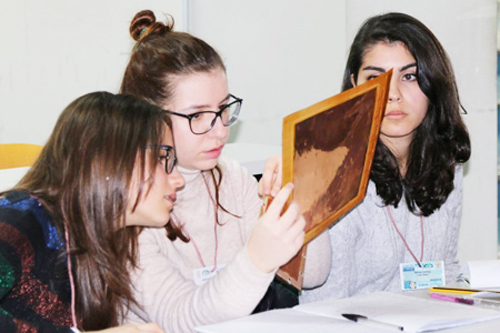
OUTREACH
ALMOST 400 FEMALE STUDENTS ENGAGED IN PARTICLE PHYSICS
During the "International Day of Women and Girls in Science", established by the General Assembly of the United Nations to promote and encourage STEM (Science, Technology, Engineering and Mathematics) careers, on February the 11th INFN organised two master classes, one in Cagliari ...
INFORMATION
cover image:
The Virgo gravitational wave interferometer in the countryside near Pisa (Italy)
Download the newsletter in pdf format
ENGLISH VERSION
ITALIAN VERSION
CONTACT
INFN - COMMUNICATIONS OFFICE
comunicazione@presid.infn.it
+39 06 6868162
